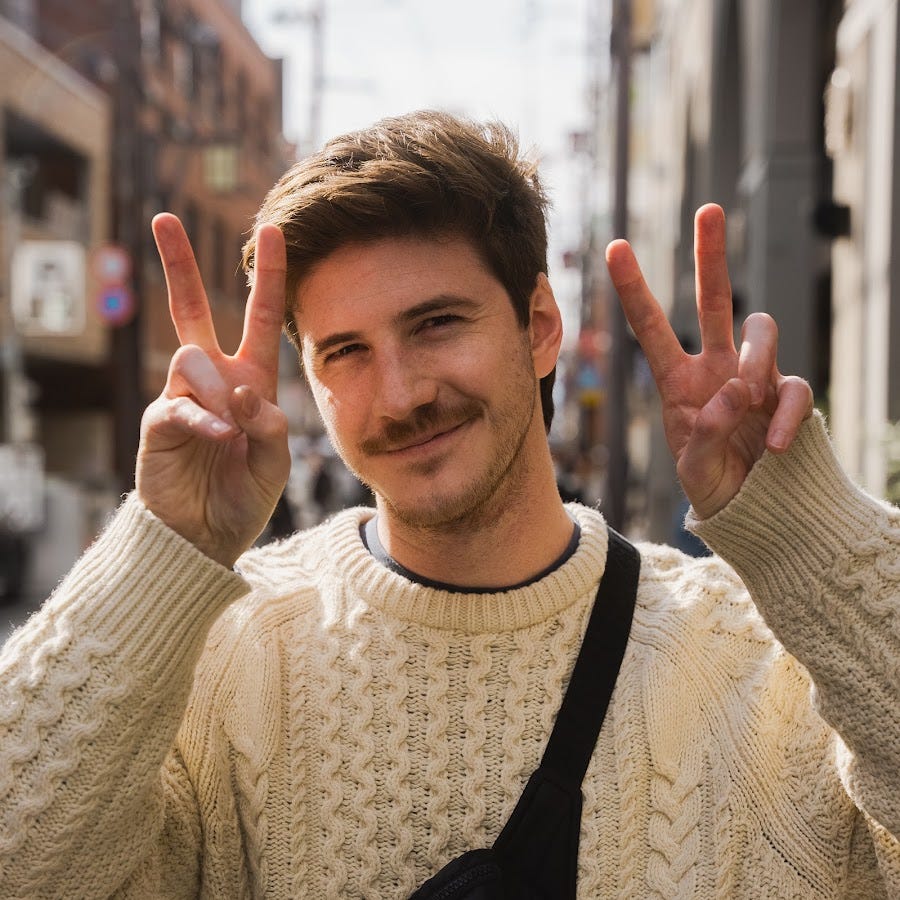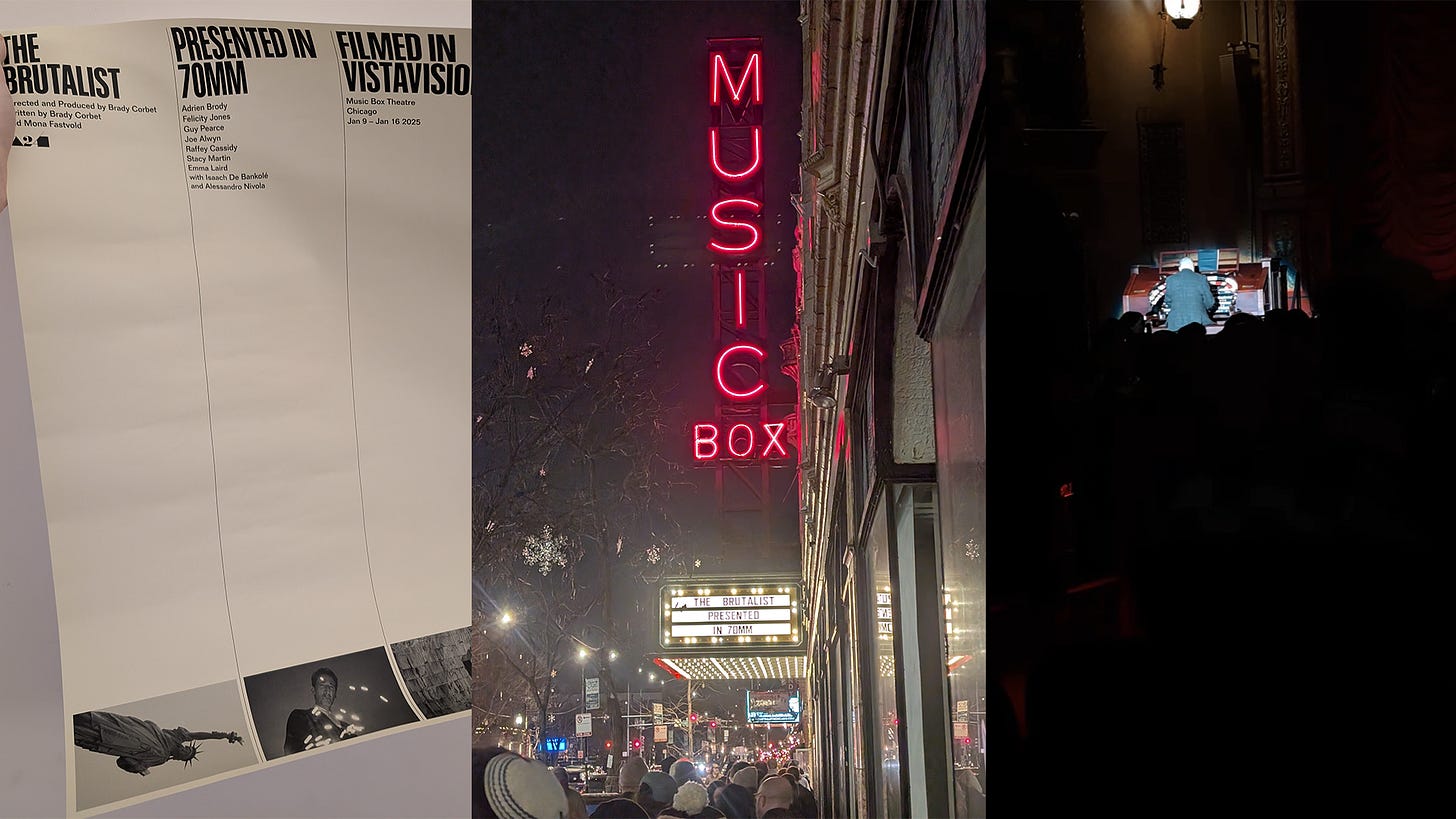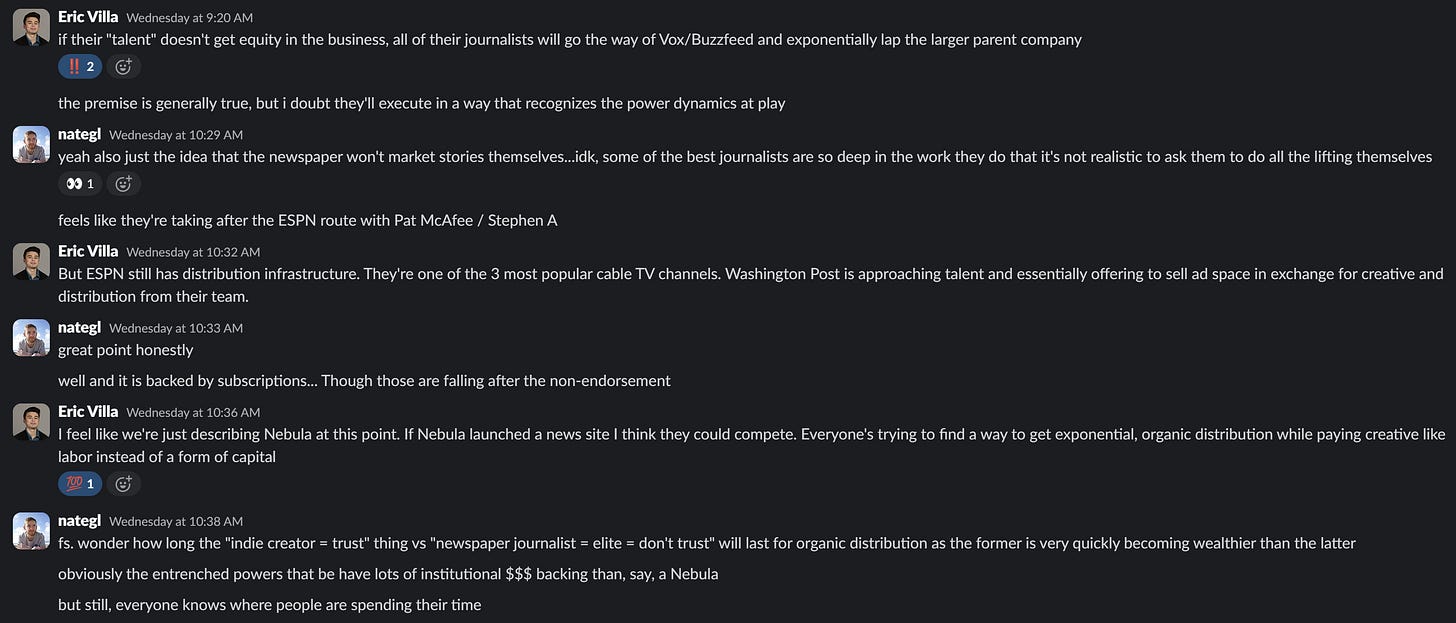Your Favorite City, Mapped 🗺️
Video journalist Daniel Steiner talks "Phase 2"
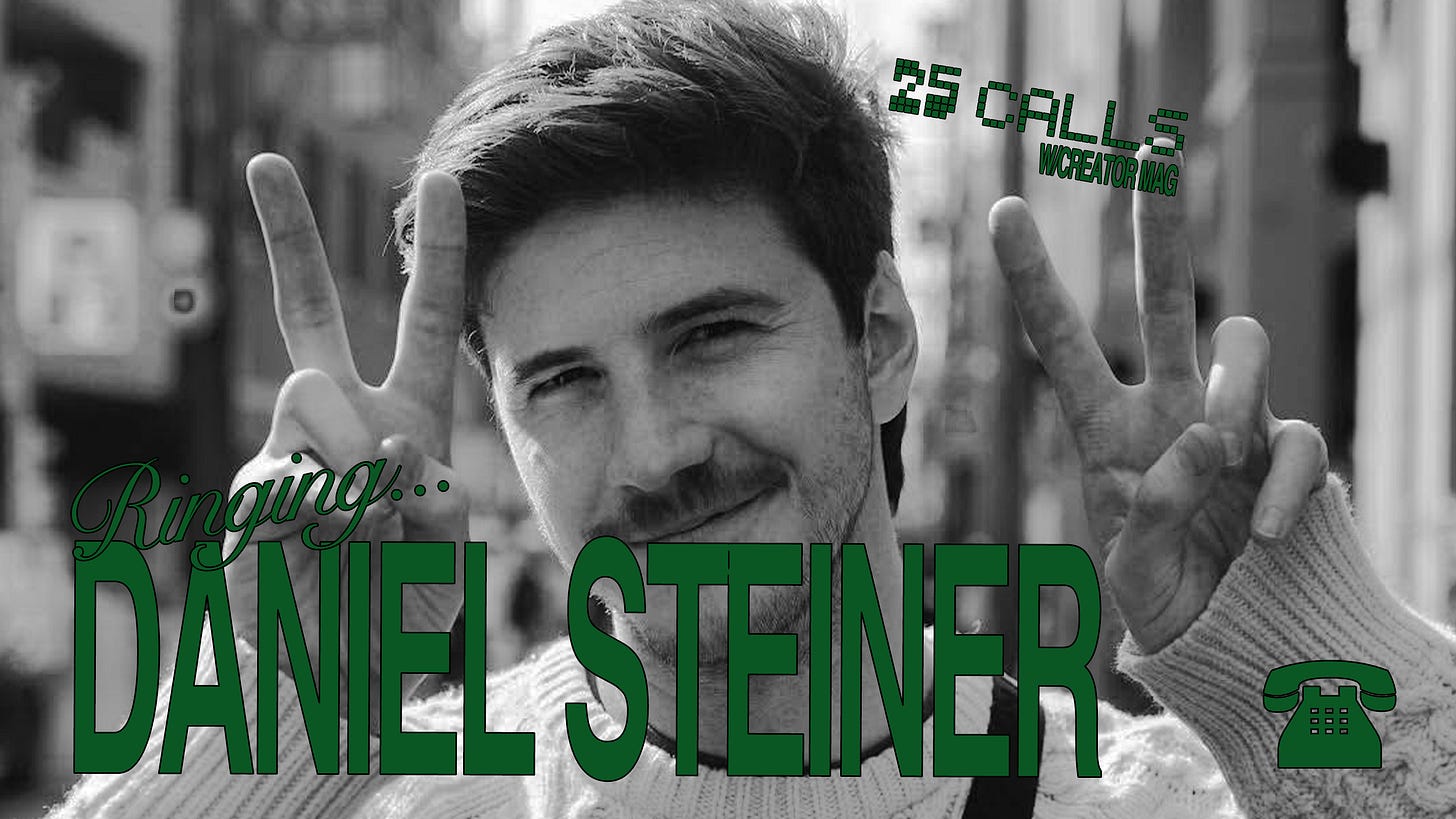
blog.twenty-three // Before diving back into our “Twenty-Five Calls for 2025” series, I just wanted to acknowledge the absolute horror and destruction unfolding in Los Angeles right now.
I tend to shy away from inserting my personal experience into conversations around crises or natural disaster, especially when they don’t actually affect me. But I did receive a couple messages from folks wishing me well, as I guess I haven’t explicitly said that I no longer live in L.A. (officially back in Chicago as of last Tuesday; more on that later).
Nevertheless, there’s a very realistic world where Vicky and I would still be in Venice right now. And while—from what I’ve read—our old neighborhood is mostly still standing, it’s only a mile or two from the edge of the evacuation zones. More relevantly, friends, collaborators, and others have lost so much. If you haven’t seen already, the guys I worked for these last two years, Colin and Samir, had their new houses in the Palisades burn down.
My heart and thoughts are with so many of the wonderful people I met and still keep up with out in Los Angeles. It’s a mixture of feelings: guilt, grief, and hope, the latter which is derived from seeing the resilience of Angelenos as they come together and build back with their neighbors. You’ve probably come across some links to support from afar, too; if you haven’t, here are three organizations doing essential work.
In regards to our “Twenty-Five Calls for 2025” series, I’m excited to welcome in our next featured creator, video journalist Daniel Steiner. I met Daniel at a YouTube event last year, and we caught up around New Year’s, when he was home with family. It’s been a pleasure watching him—as he puts it—close out “Phase One” and enter “Phase Two.”
And if you missed it last week, this “25C” project emerged from our mission: Make the Internet Feel Smaller. Through the zines we drop, the journey we document, and the gatherings we host, we’d like to extend an invitation into this little creative neighborhood we’re building. By the end of the series, we hope you feel inspired to pick up the phone and catch up with a friend, too.
You can follow along @powderblueworld on Instagram and YouTube, where we’ll be rolling out the audiovisual conversations. Alright, let’s get into it.
— NGL
P.S. Last blog, we kicked off “25C” with Donovan Beck. We talked about hope, “The Hole,” and why we should chase what haunts us. You can read it here.
P.P.S. You might notice a slightly different format in today’s blog, with a quicker-hitting “Five Things I Think (I Think)” column towards the bottom. Let me know if you like it.
Daniel Steiner is a video journalist and YouTube creator based in Salt Lake City, Utah. He produces incredibly thoughtful videos that trace the history and design of cities, connecting an explanation of their maps with their contemporary culture and communities.
The following is an edited and condensed version of our conversation.
Nate Graber-Lipperman: [Hits record]
Daniel Steiner: You got the fancy Google Meet.
NGL: Yeah, I use Riverside more often. But I don't know, I have the Google Meet set up to record, too.
DS: I guess if you're not editing video, if you're just recording…sorry, I’m getting into the technical part. What was I saying? Oh, it can be so isolating working as a creator. It looks from the outside like this big community of people, but the reality is you're just kind of on your computer a lot, just working a lot.
And in this book Working [by journalist Robert Caro], he talks about how he didn't really know any other authors while writing a biography for five years. Other people would say to him, “You've been working on a book for five years?” He felt so isolated by it.
But when I read articles about other creators or hear insights into their experiences, it feels way more communal. It feels like I'm part of something bigger than just these four walls that I spend so much time in.
It's funny you say that because literally our tagline—which you might see us start to roll out more moving forward—is “Make the Internet Feel Smaller.” It's really in line with what you're talking about, of making this feel more like a neighborhood.
That's cool.
I'll put you on the spot here. What was your biggest creative win of 2024?
I guess in some sense, I am kind of thinking about my channel and my current goals in three phases.
Phase One was prove that it works. Prove that it is the thing that you can do. Then Phase Two is like, okay, make it sustainable and achieve work-life balance and bring in other people who can help improve it. Then Phase Three will be scale.
I feel like last year, I completed Phase One. I checked it off and I proved that this thing works. And so that feels like a really huge creative win for me—that counts, right? What do you think?
I think so. Even what you were speaking to in regards to the Robert Caro book—finding other creators and their stories feels like a big win. Though it also sounds like it's something you're still actively searching for as well.
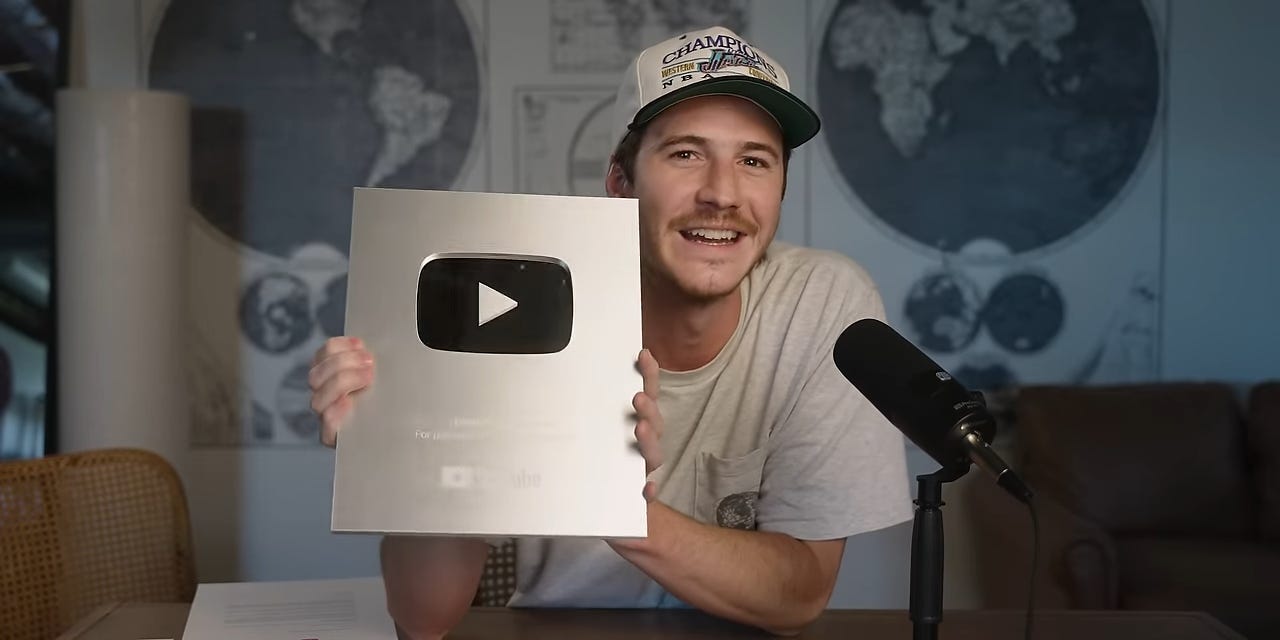
Yeah. And I don’t know if it’s a win, but a really strong learning last year was that it all rests on writing. It's so easy to get into video stuff and be like, “I want to make it look good, and I want to do this, that, and whatever.”
I went to film school, and I spent so long figuring out the technicalities of how to use a camera and how to animate something. Now I have to actually find something underneath that's good enough to share—writing and researching, then, feel like my weakest things.
I'm sort of doing it backwards. So I feel like my biggest creative win is maybe just that realization and reprioritization of production, that writing is just top priority.
[Pauses] Sorry, I’m out of breath from all that walking and talking.
Nah, you're all good. My second question I had for you was about what learnings you’re bringing into 2025. Sounds like you already know the answer.
Yeah. It’s kind of helping me realize with Phase Two that—in order to make every aspect of my video better, and in order to involve an editor and a research assistant or whatever—I have to have a script together.
Because so much of it is about writing, I’m now realizing that I shouldn't be as afraid of covering topics that have been covered by other people. I've always thought that a video that has been made doesn't need to be remade.
But there's been how many books written about Lincoln? And maybe those don't need to exist, but you can have a new take on something or you can research it differently or deeper. I just realized how simplistic I've been looking at it.
I don't know if that makes sense. I hope this makes sense.
I hear you on that Lincoln aspect. I feel like there's just so much content nowadays that it can be like, “What do I really have to offer that's unique?” But that's where the writing and research stands out—what you were alluding to.
It's just sort of this new part of my brain that’s been unlocked. Viewers or readers appreciate depth, and they can feel it when you're putting in the extra effort. It doesn't matter if it's a topic that's already been covered. If you go the extra mile, people appreciate value.
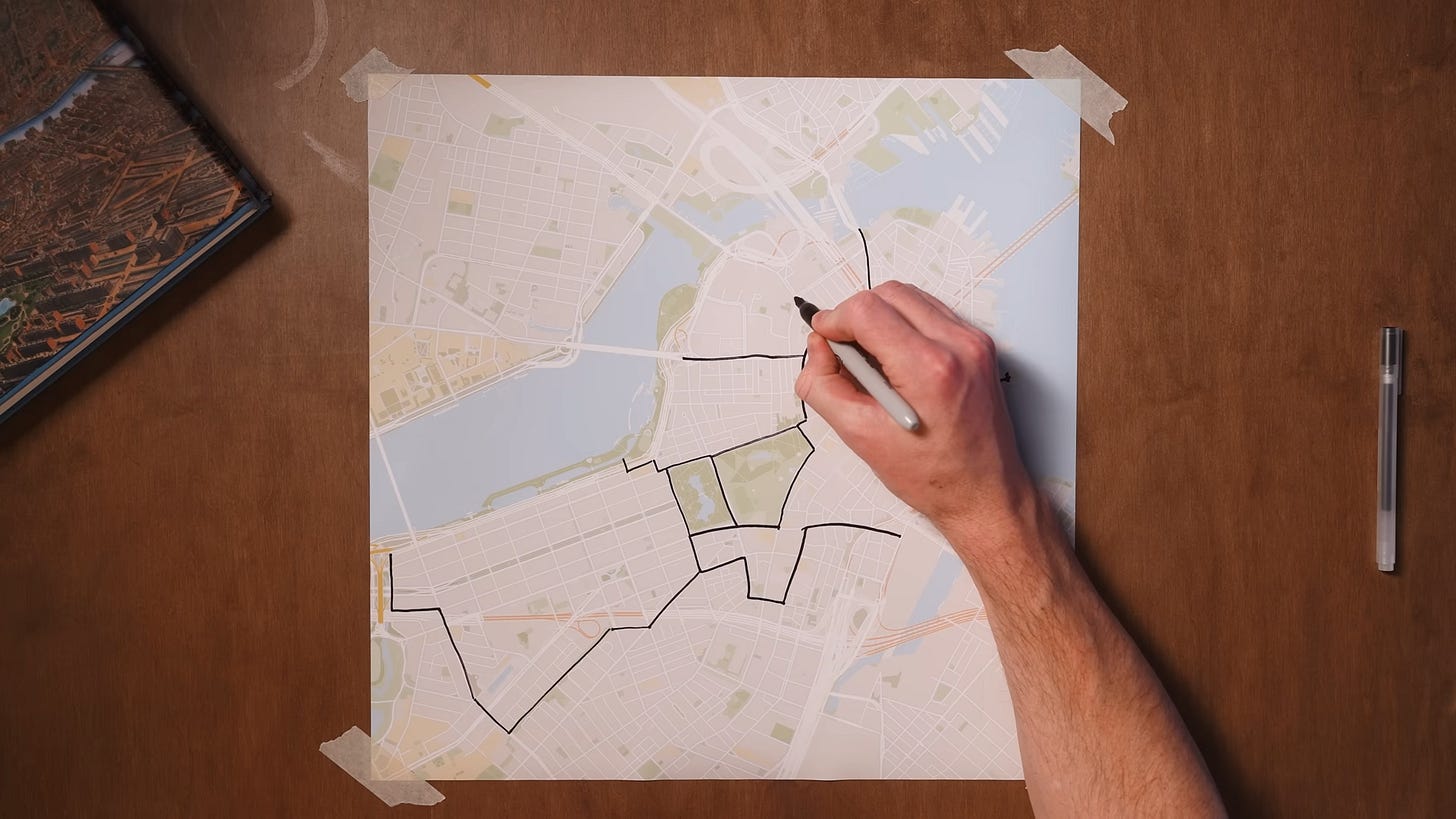
I want to hand the mic back over to you. Any last thoughts or comments?
I don't feel like a YouTuber. I guess it's the imposter syndrome thing or something. But I have no idea what I'm doing. I feel like my creative vision isn't even partially realized. It just feels like the coolest thing in the world to be able to go through the whole creative cycle once a month. That is the best thing ever—to learn again and again, every single month.
But I don't know. It still just doesn't feel real because I've wanted to do it for so long, and this is the year that it actually worked. And I was like, “Oh…that’s sick.”
I think it's also, like, you have to learn so many other skills. So now I'm a novice at trying to run a business, or be a writer or a researcher or an interviewer. It constantly feels like I'm just at the beginning, I guess.
That makes sense. Even to the point of writing, I remember Hank Green saying how above all else, he views himself as a writer. Because the vlogs he makes every week, it's really writing a script and then delivering it.
I was just realizing yesterday…I get weirded out about people's perception of me. But it doesn't matter if people don't perceive me as a writer. It's what I do anyway. It’s the core of what I have to do now. And so that is the first thing I'm going to be focusing on.
It's kind of this mindset shift of the goal. The goal isn't to run, for example—the goal is to become a runner, to show up every day and build that belief system. Versus, like, I'm going to go run fifty miles today on a whim.
And it's a much bigger task to become a writer than to just write.
You can follow along with Daniel’s journey here.
Five Things I Think (I Think)
I think more people should make three-and-a-half-hour-long movies. Last night, I saw The Brutalist (2024) with some friends at the historic Music Box Theatre, located in the Lake View neighborhood of Chicago.
The film was…quite long. There’s even a fifteen-minute intermission, with a countdown clock on the screen and everything. But honestly, at a certain point, ya gotta respect director Brady Corbet’s bet on self-indulgence. Between shooting his movie on 70mm film and showing it in VistaVision, Corbet’s reputation as an auteur has pretty much marketed the film by itself, leading many excited viewers to jokingly label themselves “Brutalist Boys.”
The theatre was packed at my eight o’clock showing—meaning we didn’t walk out of the theatre until right before midnight.
I think the movie is about how artists often deliver their message through a Trojan Horse of sorts. The Brutalist follows the journey of a celebrated Hungarian architect (expertly portrayed by Adrien Brody) who immigrates to the U.S. following World War II. He works his way back into his field when a rich industrialist recognizes the architect’s talent—and promptly hires him to lead a major project.
There’s an interesting meta-commentary on why we as creative people decide we need to share our work with the world. We like having creative control, but anyone can make something for themselves and reserve the right to final cut. Performing our work publicly has to come (in some part) from a place of ego. And the ability to support our work publicly often comes from either rich patrons or favorable algorithms—meaning we have to sneak what we actually want to say over those high walls.
I won’t spoil any of the film’s plot points, though I thought Corbet—who developed his movie over seven years (!!)—conveyed this theme very effectively.
I think A24 has mastered world-building. Some cinephiles have made hating on A24 their whole personality, as the production and distribution company has gained more widespread success.
Those people aren’t fun. You know what is fun? Receiving limited-edition zines and posters. A24 included that as part of my showing, and the physical media expands The Brutalist in a really cool way. The world-building was so thorough, one friend didn’t even realize that Brody’s character was fictional at first.
I think more theatres should employ dudes playing organs. Apparently that’s something the Music Box does thirty minutes before every movie? Love it.
I think The Washington Post’s decision to lay off their PR team in favor of “talent-driven journalism” and “creators” is absurd. A completely different topic than The Brutalist…but I thought a screenshot of this conversation in the Powder Blue Slack was worth sharing here:
Thanks for reading! Shoot me a reply, comment, or DM if anything resonated with you in particular—I respond to them all.





